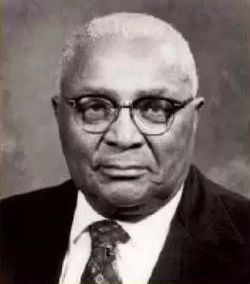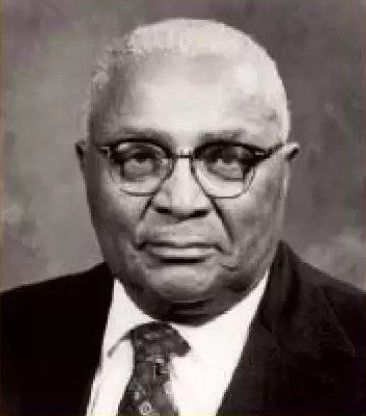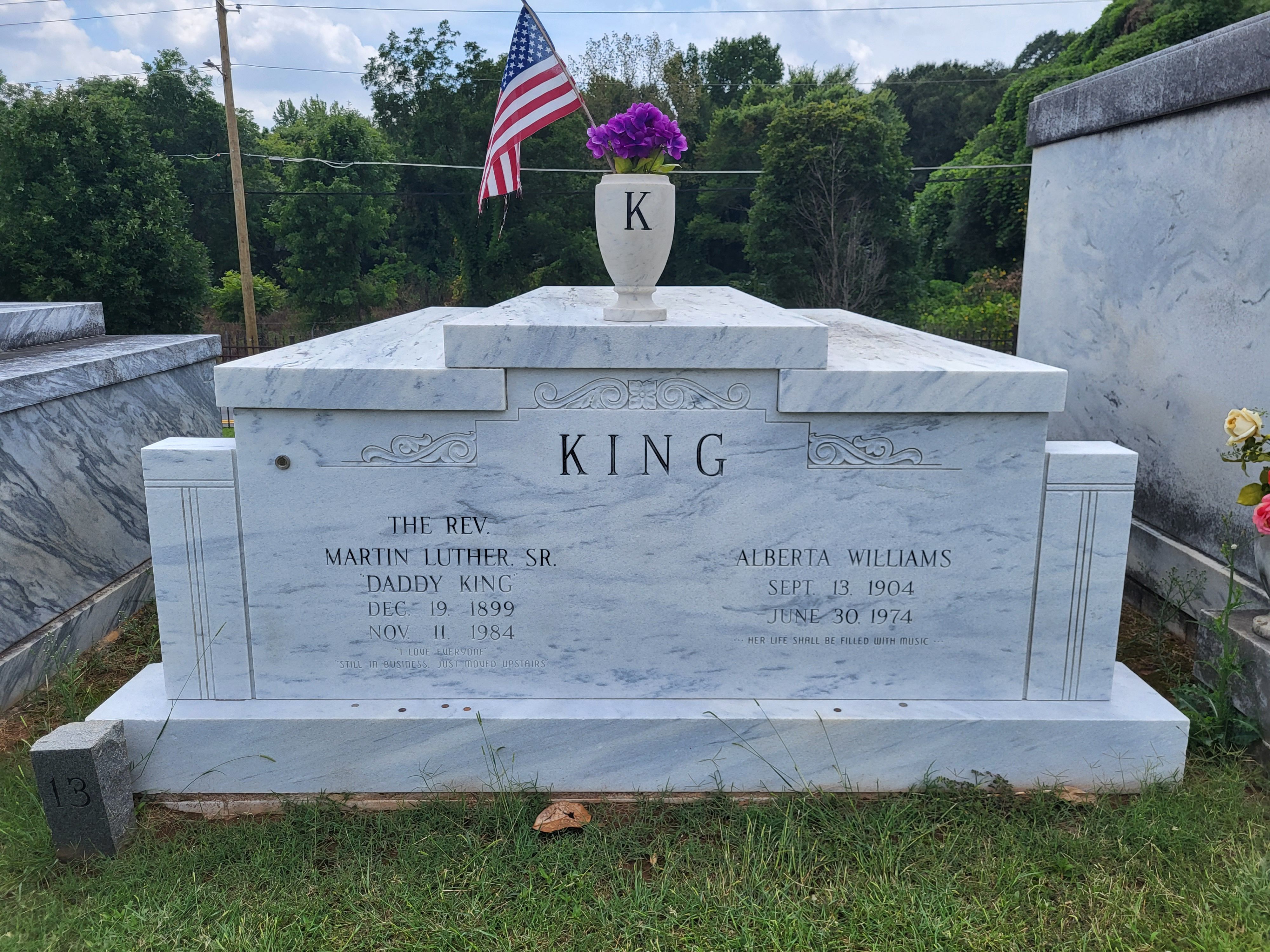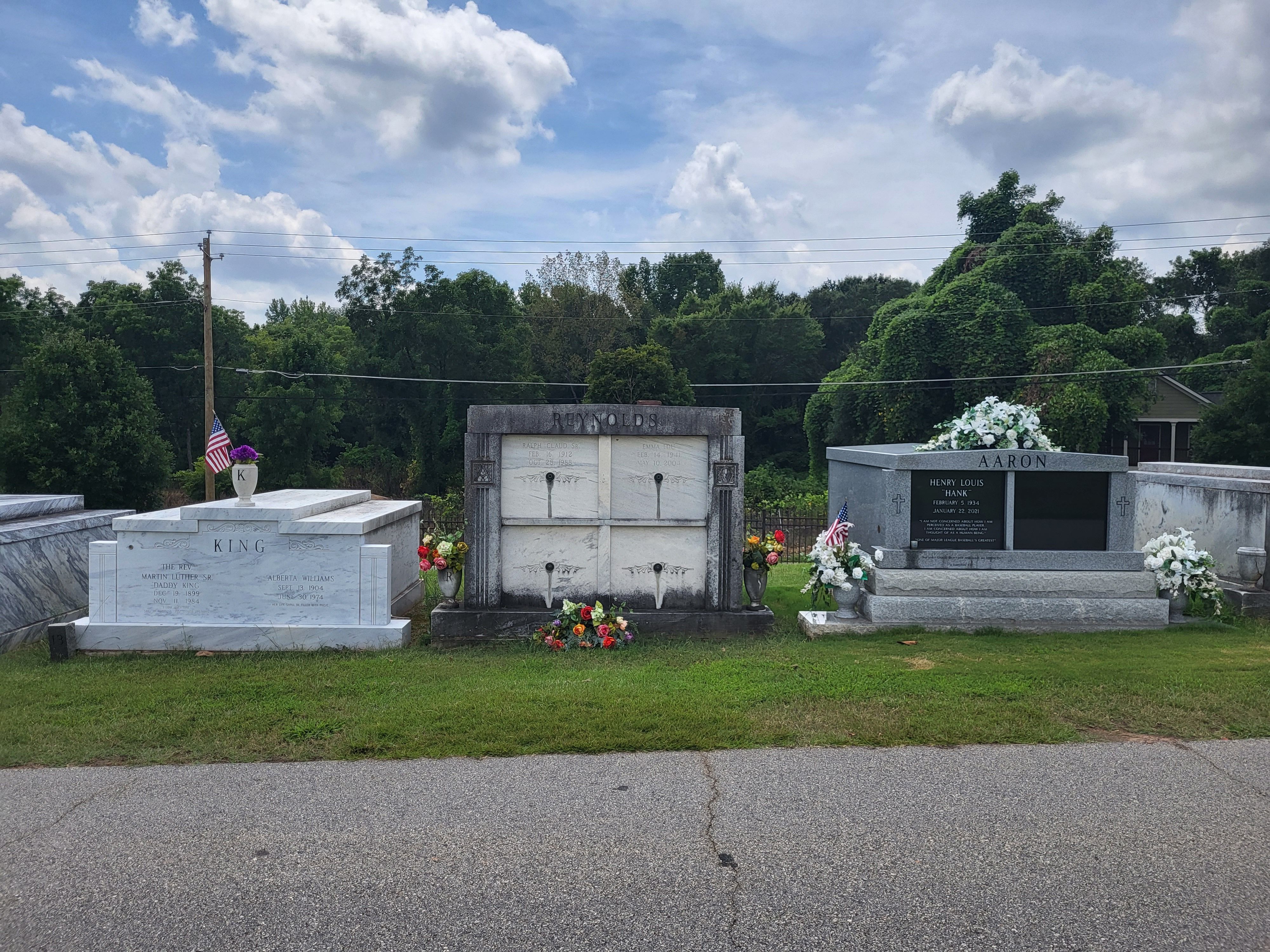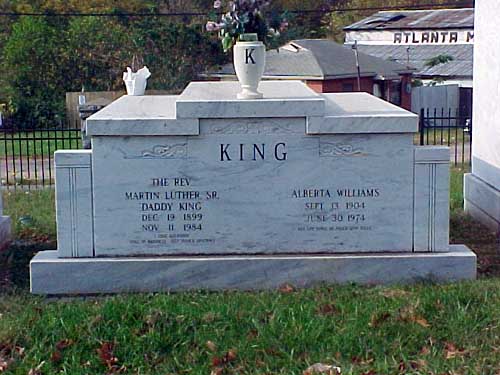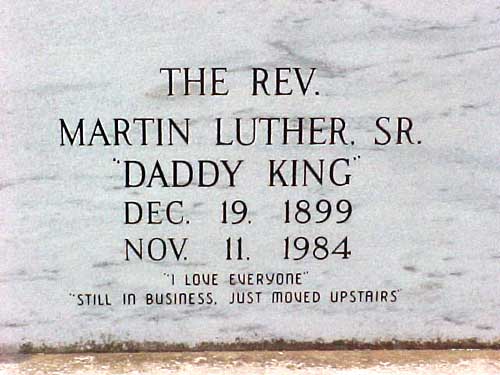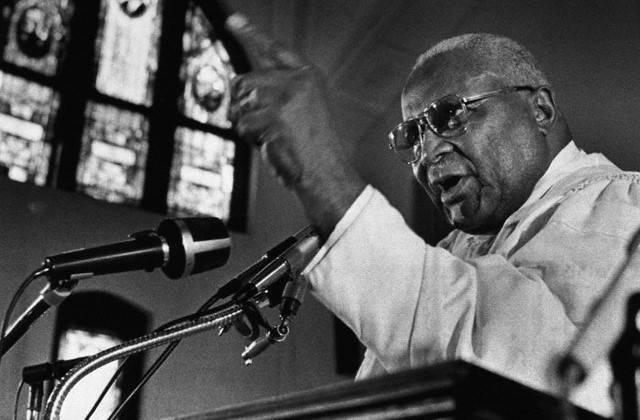Woodie was boarding at the home of Rev. A. D. Williams, prominent minister of Ebenezer Baptist Church. King seized the opportunity to introduce himself to the minister's daughter, Alberta Williams. After the two began a courtship, he was quickly welcomed into the Williams household. Rev. and Mrs. Williams supported their future son-in-law's ministerial aspirations by encouraging him to continue his education. He worked a variety of jobs on the railroads, in an auto tire shop, loading bales of cotton, and driving a truck.
He also went to school at night, graduating from high school in 1925. He then completed his studies at Bryant Preparatory School and served as pastor of several churches in Atlanta and nearby College Park before becoming assistant pastor of Ebenezer in 1926. He was able to convince the president of Atlanta's Morehouse College that he should be admitted to the three-year minister's degree program at the Morehouse School of Religion in 1926 despite not fully meeting the school's educational requirements. On Thanksgiving Day of that same year, he and Alberta were joined in marriage at Ebenezer. The newlyweds then moved into the Williams family home, where they had three children, Willie Christine, Martin Luther, Jr., and Alfred Daniel, within their first four years of marriage. As he continued his education, he also took over some of the duties at the church. When his father-in-law suddenly died in the spring of 1931, he was voted pastor. Through membership and fundraising drives, he rescued the church from financial ruin brought on by the Great Depression and preached his message of social action and nonviolence. During the 1930s, he built up the membership of Atlanta's Ebenezer Baptist Church to a congregation of several thousand.
This gave him a base in the African American community from where he could preach about civil rights and advocate progressive social action. In 1936, he led the first black voting rights march in the history of Atlanta. In the 1930s, King joined the NAACP, the Atlanta Negro Voters League, and the Interracial Council of Atlanta. In addition to the voting rights march, he worked at integrating the Ford Motor Company and ending segregation of the elevators in the Fulton County courthouse. By 1934, he was a well-respected pastor and traveled to the World Baptist Alliance in Berlin. Also at this time, he changed his name and that of his oldest son to Martin Luther King at the wish of his dying grandfather. Never hesitating to direct his influence as a pastor toward the cause of racial equality, he headed Atlanta's Civic and Political League and NAACP branches. In 1960, he played a key role in mobilizing black support to elect John F. Kennedy as president. But perhaps his most significant contribution to the civil rights movement was the influence he had on the development of Martin Luther King, Jr's social consciousness.
From 1956 to 1968 his son rose to be one of the major national leaders of the civil rights movement and throughout his son's career, he continued to advocate racial equality within his church and community. April of 1968 began a series of tragedies in the life of King with the assassination of his son which devastated him. In 1969 his younger son A. D. drowned in a mysterious swimming pool accident and in 1974 his beloved wife who he called "Bunch" was shot while playing the organ at Ebenezer (The assassin later admitted that King had been his target). Despite the spiritual strength provided by the Lord, he grieved deeply. He stepped into a public role after his son's death, attending events that honored his son and delivering the invocation at the 1976 and 1980 Democratic National Conventions. He continued to preach at Ebenezer until his resignation in 1975. In the fall of that same year, he becomes the first African American to address a joint session of the Alabama state legislature.
In 1976, when presidential candidate Jimmy Carter made a remark about "ethnic purity," many believed that would lose him the southern black vote. King played an instrumental role in preventing that. When King hugged Carter on a public platform, it symbolized Carter's acceptance by black civil rights leaders, and Carter went on to win 90 percent of the black vote. In August 1976, King found himself in a coronary care unit. The following year he was treated for congestive heart failure. Although his steps were slowing, his spirit still sought usefulness and service. He spent the remainder of his life-giving lectures and as a guest minister at churches. King died on November 11, 1984. Days later, nearly 3,000 blacks and whites stood side by side at his funeral at Ebenezer Baptist Church. One by one, leaders of the nation came to offer memories of and tributes to the man who had occupied the church's pulpit for 44 years and whose faith in God and compassion for his fellow man directed his life.
Woodie was boarding at the home of Rev. A. D. Williams, prominent minister of Ebenezer Baptist Church. King seized the opportunity to introduce himself to the minister's daughter, Alberta Williams. After the two began a courtship, he was quickly welcomed into the Williams household. Rev. and Mrs. Williams supported their future son-in-law's ministerial aspirations by encouraging him to continue his education. He worked a variety of jobs on the railroads, in an auto tire shop, loading bales of cotton, and driving a truck.
He also went to school at night, graduating from high school in 1925. He then completed his studies at Bryant Preparatory School and served as pastor of several churches in Atlanta and nearby College Park before becoming assistant pastor of Ebenezer in 1926. He was able to convince the president of Atlanta's Morehouse College that he should be admitted to the three-year minister's degree program at the Morehouse School of Religion in 1926 despite not fully meeting the school's educational requirements. On Thanksgiving Day of that same year, he and Alberta were joined in marriage at Ebenezer. The newlyweds then moved into the Williams family home, where they had three children, Willie Christine, Martin Luther, Jr., and Alfred Daniel, within their first four years of marriage. As he continued his education, he also took over some of the duties at the church. When his father-in-law suddenly died in the spring of 1931, he was voted pastor. Through membership and fundraising drives, he rescued the church from financial ruin brought on by the Great Depression and preached his message of social action and nonviolence. During the 1930s, he built up the membership of Atlanta's Ebenezer Baptist Church to a congregation of several thousand.
This gave him a base in the African American community from where he could preach about civil rights and advocate progressive social action. In 1936, he led the first black voting rights march in the history of Atlanta. In the 1930s, King joined the NAACP, the Atlanta Negro Voters League, and the Interracial Council of Atlanta. In addition to the voting rights march, he worked at integrating the Ford Motor Company and ending segregation of the elevators in the Fulton County courthouse. By 1934, he was a well-respected pastor and traveled to the World Baptist Alliance in Berlin. Also at this time, he changed his name and that of his oldest son to Martin Luther King at the wish of his dying grandfather. Never hesitating to direct his influence as a pastor toward the cause of racial equality, he headed Atlanta's Civic and Political League and NAACP branches. In 1960, he played a key role in mobilizing black support to elect John F. Kennedy as president. But perhaps his most significant contribution to the civil rights movement was the influence he had on the development of Martin Luther King, Jr's social consciousness.
From 1956 to 1968 his son rose to be one of the major national leaders of the civil rights movement and throughout his son's career, he continued to advocate racial equality within his church and community. April of 1968 began a series of tragedies in the life of King with the assassination of his son which devastated him. In 1969 his younger son A. D. drowned in a mysterious swimming pool accident and in 1974 his beloved wife who he called "Bunch" was shot while playing the organ at Ebenezer (The assassin later admitted that King had been his target). Despite the spiritual strength provided by the Lord, he grieved deeply. He stepped into a public role after his son's death, attending events that honored his son and delivering the invocation at the 1976 and 1980 Democratic National Conventions. He continued to preach at Ebenezer until his resignation in 1975. In the fall of that same year, he becomes the first African American to address a joint session of the Alabama state legislature.
In 1976, when presidential candidate Jimmy Carter made a remark about "ethnic purity," many believed that would lose him the southern black vote. King played an instrumental role in preventing that. When King hugged Carter on a public platform, it symbolized Carter's acceptance by black civil rights leaders, and Carter went on to win 90 percent of the black vote. In August 1976, King found himself in a coronary care unit. The following year he was treated for congestive heart failure. Although his steps were slowing, his spirit still sought usefulness and service. He spent the remainder of his life-giving lectures and as a guest minister at churches. King died on November 11, 1984. Days later, nearly 3,000 blacks and whites stood side by side at his funeral at Ebenezer Baptist Church. One by one, leaders of the nation came to offer memories of and tributes to the man who had occupied the church's pulpit for 44 years and whose faith in God and compassion for his fellow man directed his life.
Bio by: Curtis Jackson
Inscription
"I Love Everyone"
"Still In Business, Just Moved Upstairs"
Family Members
Advertisement
See more King memorials in:
Explore more
Sponsored by Ancestry
Advertisement
